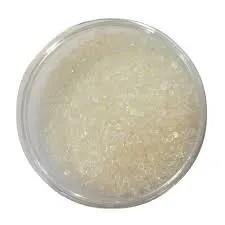The Importance of PQQ in Human Health and Nutrition
Pyrroloquinoline quinone (PQQ) has emerged as a significant compound in the realm of health and nutrition, capturing the attention of researchers, nutritionists, and the wellness community. Initially recognized for its role as a redox cofactor in bacterial metabolism, PQQ is now being extensively studied for its potential benefits to human health. The implications of PQQ's properties are profound, particularly concerning energy metabolism, cognitive function, and mitochondrial health.
One of the essential functions of PQQ is its impact on mitochondrial function. Mitochondria are the powerhouses of the cell, responsible for producing adenosine triphosphate (ATP), the primary energy currency in biological systems. Recent research suggests that PQQ plays a vital role in promoting the growth and health of mitochondria. It has been found to stimulate the production of new mitochondria, a process known as mitochondrial biogenesis. This is particularly important as mitochondrial dysfunction is implicated in a variety of health conditions, including neurodegenerative diseases, metabolic disorders, and aging.
.
In the context of cognitive health, PQQ has been linked to improved memory and cognitive function. Studies have shown that PQQ supplementation may enhance neurological function, possibly by increasing nerve growth factor levels and supporting synaptic plasticity—the ability of synapses to strengthen or weaken over time. This is crucial for learning and memory. Animal studies have demonstrated that PQQ not only improves cognitive performance but also protects against neurotoxicity, suggesting its therapeutic potential in conditions such as Alzheimer’s and Parkinson’s disease.
pqq 10 supplement

Moreover, PQQ might play a role in improving sleep quality and reducing anxiety. Preliminary findings indicate that PQQ supplementation could positively influence sleep patterns by modulating stress-related hormones and enhancing overall well-being. As sleep quality becomes increasingly recognized as a critical component of health, PQQ’s potential to support restful sleep warrants further exploration.
Dietary sources of PQQ are varied, albeit limited, which intensifies the need for awareness regarding this compound. Found in foods like natto (fermented soybeans), spinach, green bell peppers, and kiwi, PQQ is not abundantly available in the typical Western diet. This has led to the consideration of PQQ supplementation as a viable option for those looking to enhance their overall health and well-being.
As with any supplement, it’s essential that consumers approach PQQ with informed caution. While preliminary studies show promise, more extensive clinical trials are necessary to fully understand its mechanisms and therapeutic potential. Additionally, discussing any supplementation with a healthcare professional is advisable, particularly for individuals with existing health conditions or those taking medication.
In conclusion, pyrroloquinoline quinone (PQQ) represents a fascinating area of research in health and nutrition, with its implications spanning mitochondrial health, cognitive function, and oxidative stress reduction. As scientists continue to uncover the roles and benefits of PQQ, it may very well become a staple in the discussion of nutrients that support a healthy, vibrant life. With a balanced diet and the potential inclusion of PQQ, individuals might be better equipped to tackle the challenges of modern living, promoting not just longevity, but also a higher quality of life. The journey of understanding PQQ is just beginning, and its future in health and nutrition looks promising.

